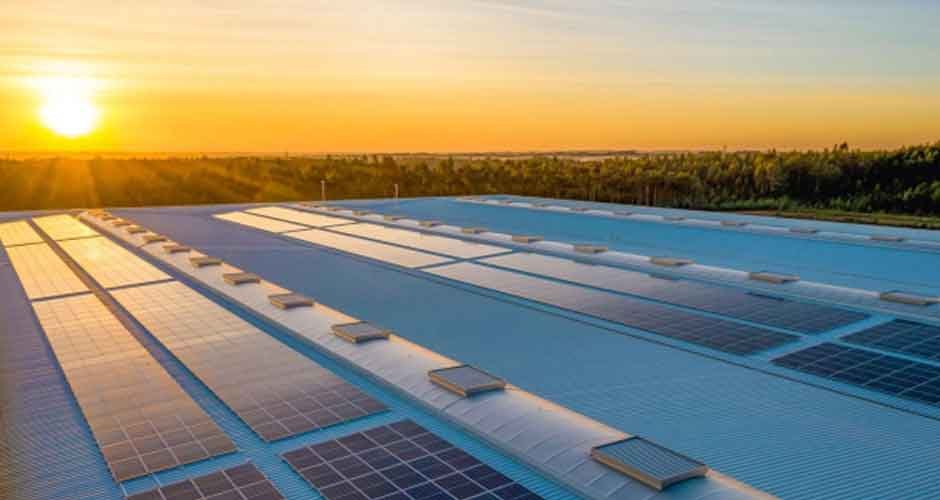Off-grid solar solutions have risen to prominence as a compelling choice for individuals seeking energy self-sufficiency and eco-friendly living. These innovative systems leverage the boundless power of the sun to meet all of your energy needs, liberating you from dependence on the traditional electrical grid.
A Comprehensive Exploration of Off-Grid Solar Systems:
An off-grid solar system represents a self-contained power solution that harnesses the capabilities of solar panels, battery storage, and associated equipment to generate, store, and deliver solar energy directly on-site. This grants you the capability to produce and consume 100% of your energy, thereby eliminating your reliance on conventional electric utility providers.
The Components of an Off-Grid Solar System:
A fully-fledged off-grid solar system comprises a set of indispensable components:
- Solar Panels: Serving as the primary energy generators, these panels capture sunlight and convert it into electricity.
- Battery Storage: Batteries store surplus energy generated by solar panels, allowing you to utilize it during periods of reduced sunlight, such as at night or on cloudy days.
- Inverters: These devices are responsible for converting direct current (DC) electricity produced by the solar panels into alternating current (AC) electricity, which is suitable for powering your household appliances.
- Monitoring System: This system enables you to monitor the performance and energy production of your solar setup.
Advantages and Considerations:
Off-grid solar systems offer several notable advantages:
– Energy Independence: You are no longer entirely dependent on utility companies for your power supply, giving you unprecedented control over your energy production.
– Environmental Impact: Solar power represents a clean, renewable energy source that significantly reduces your carbon footprint, contributing to a more sustainable planet.
– Versatility: These systems are incredibly adaptable and can be deployed in diverse settings, ranging from remote cabins and recreational vehicles (RVs) to family homes.
However, there are also several considerations to keep in mind:
– Initial Costs: The initial investment for an off-grid solar system can be substantial, typically ranging from $12,000 to $50,000, depending on the scale of the installation.
– Maintenance: To ensure optimal performance, these systems demand regular monitoring and maintenance, though the long-term benefits often outweigh these costs.
– Legal Restrictions: In some jurisdictions, off-grid solar systems may encounter regulatory challenges, so it’s essential to be aware of local laws and regulations.
Is Off-Grid Solar Right for You?
Before committing to the transition to an off-grid solar system, it’s crucial to evaluate the following factors:
– Energy Consumption: Carefully assess your specific energy requirements, as off-grid systems are typically customized to match your particular needs.
– Location: The amount of sunlight your location receives directly impacts the efficiency of your solar panels, affecting energy production.
– Budget: Consider both the initial investment and ongoing maintenance costs. While the upfront expense can be substantial, the long-term savings and benefits are often significant.
The Future of Off-Grid Solar:
The future of off-grid solar holds immense promise. Ongoing technological advancements are expected to enhance system efficiency and affordability, making these systems even more accessible to a broader audience. Furthermore, as environmental consciousness continues to grow, the demand for off-grid solar solutions is anticipated to surge, further propelling this eco-friendly revolution.
FAQs about Off-Grid Solar Solutions:
What is an off-grid solar system?
An off-grid solar system is a self-contained power solution that utilizes solar panels and batteries to generate, store, and supply electricity independently, without relying on the traditional electrical grid.
How do off-grid solar systems work?
Off-grid solar systems generate electricity from sunlight using solar panels. Excess energy is stored in batteries for use during periods of low sunlight, and inverters convert this energy into a form suitable for powering your home appliances.
What are the main components of an off-grid solar system?
The essential components include solar panels, battery storage, inverters, and a monitoring system. Solar panels capture sunlight, batteries store excess energy, inverters convert it into usable electricity, and the monitoring system allows you to track system performance.
What are the advantages of using an off-grid solar system?
Off-grid solar systems offer energy independence, reduce your environmental footprint by using clean energy, and are versatile, suitable for various settings, from remote cabins to residential homes.
What are the disadvantages of off-grid solar systems?
Some disadvantages include the initial high costs of installation, regular maintenance requirements, and potential legal restrictions in certain jurisdictions.
How do I determine if an off-grid solar system is right for my home?
Assess your energy consumption, location’s sunlight availability, and budget. An off-grid system is ideal if you desire energy independence and have the resources to invest in the upfront costs.
Can I use an off-grid solar system in urban areas?
Off-grid solar systems are more commonly used in rural and remote areas. However, they can be installed in urban areas, but local regulations and available sunlight may impact their feasibility.
What is the future outlook for off-grid solar solutions?
The future of off-grid solar looks promising, with ongoing advancements in technology expected to improve efficiency and affordability. As environmental awareness grows, the demand for these solutions is likely to increase.
How long do off-grid solar system components, like batteries, typically last?
The lifespan of components can vary, but solar panels often last 25 years or more, while batteries may require replacement every 5-15 years, depending on usage and maintenance.
Are there government incentives or rebates for off-grid solar installations?
Government incentives and rebates for off-grid solar systems vary by location. It’s advisable to check with local authorities and relevant agencies to explore potential financial incentives.
In Conclusion:
Off-grid solar solutions provide a sustainable and self-reliant energy source, which, despite the challenges, offers an array of compelling benefits. As we progress toward a more sustainable future, off-grid solar systems will undoubtedly play a pivotal and trans formative role in our evolving energy landscape.






